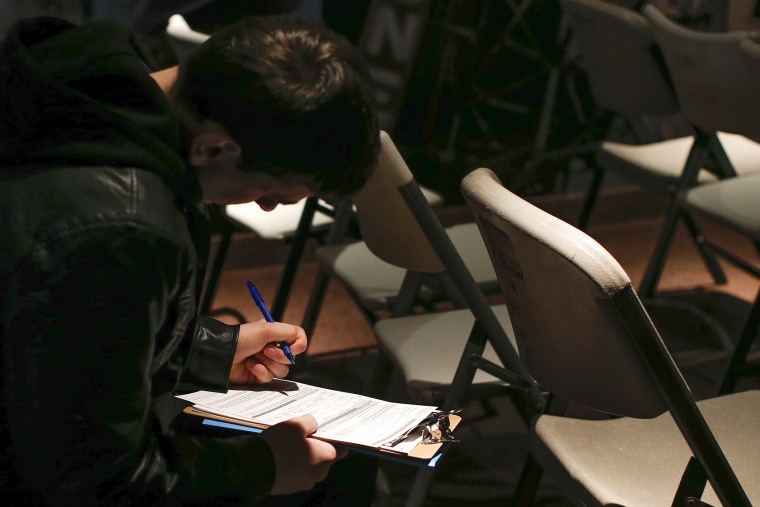There's plenty of evidence that cutting off unemployment benefits slows economic growth by taking money from the pockets of those most likely to spend it quickly. Since Congress let jobless aid expire on December 28, there are early signs that slowdown has already begun.
JPMorgan points out that retail sales dropped 0.6% in January, according to revised numbers from the Census Bureau -- more than had previously been reported. And the bank's chief economist, Michael Feroli, doesn't think it's enough to blame the cold weather.
"While weather often gets singled out for that disappointment, we think the reduction in disposable income with the expiration of extended unemployment benefits may be more to blame," Feroli wrote in a new research note. "Sales at internet stores -- normally quite resilient to weather effects -- fell 1.7% in January, the second worst outcome since the end of the recession."
JPMorgan had predicted months ago that the end of federal unemployment benefits would slow the country's overall economic growth this year: The firm said in November that it would reduce GDP growth by 0.4 percentage points in 2014 as there'd be $20 to $25 billion less in spending. The nonpartisan Congressional Budget Office similarly estimated that the end of jobless aid would reduce GDP growth by 0.2 percentage points.
Unemployment benefits have a stimulative effect on the economy, because people without jobs tend to spend their money more quickly than the rest of the population. Economists warn that ending jobless benefits when unemployment is still high would not only reduce consumer spending, but also prompt the unemployed to give up looking for work and drop out of the labor force altogether. An estimated 2 million unemployed workers have lost their benefits since emergency federal aid expired in late December, according to the National Employment Law Project.
The political window for acting on unemployment benefits, however, is closing fast on Capitol Hill. Blocked for months by Republicans on the issue, Democrats will make a big, last-ditch push at the end of March, when Congress is scheduled to tackle an unrelated spending bill on Medicare provider payments.
